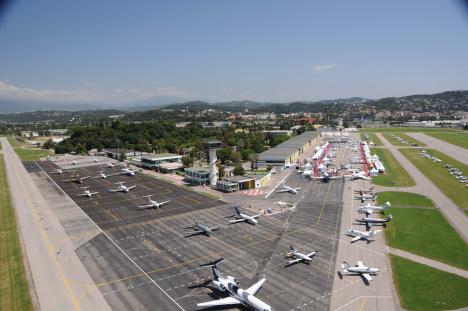Cannes-Mandelieu and Golfe de Saint-Tropez airports have announced they will be converting all internal combustion engine vehicles that can not be converted to fully electric to biodiesel
Fire engines, refuelling lorries, farm machinery, and the all auxiliary power units used to supply electricity to aircraft on stopovers are now fuelled with biodiesel at Cannes-Mandelieu airport, the operator announced this week.
HVO100 biodiesel is produced from waste products including edible oils, animal fats and by-products from the paper-pulp sector. HVO100 Renewable Diesel is a premium fossil free diesel product made of renewable raw materials, which does not release any new carbon dioxide into the atmosphere. Over its lifecycle it results in a saving of 80% CO2.
Both airports already hold the Airport Carbon Accreditation level 4+, and this latest move extends their efforts to decarbonise their ground handling operations.
Cannes-Mandelieu airport uses 20,000 litres of diesel each year, so the switch to biodiesel represents a further saving of 42 tonnes of CO2 a year representing half of the residual emissions from the airport.
At Golfe de Saint-Tropez airport, due to open next month, annual diesel consumption of 4,000 litres a year,means a saving of 8.5 tonnes of CO2 equivalent per year.
Chairman of the Board of Aéroports de la Côte d’Azur Franck Goldnadel said: “No effort should be spared to reduce the carbon footprint of our activities in our region. Far from being the only solutions to be envisaged, technological developments represent opportunities that must be grasped without delay to achieve carbon neutrality as quickly as possible without offsetting. Our roadmap is clear, and we are committed to achieving neutrality by 2030.”





